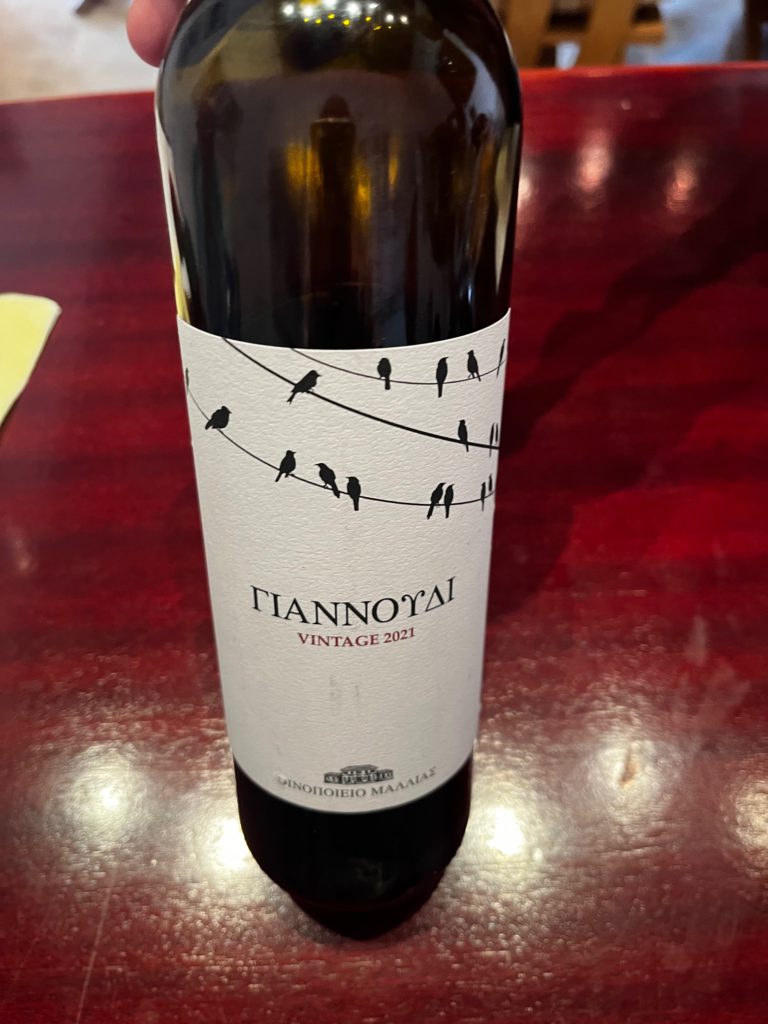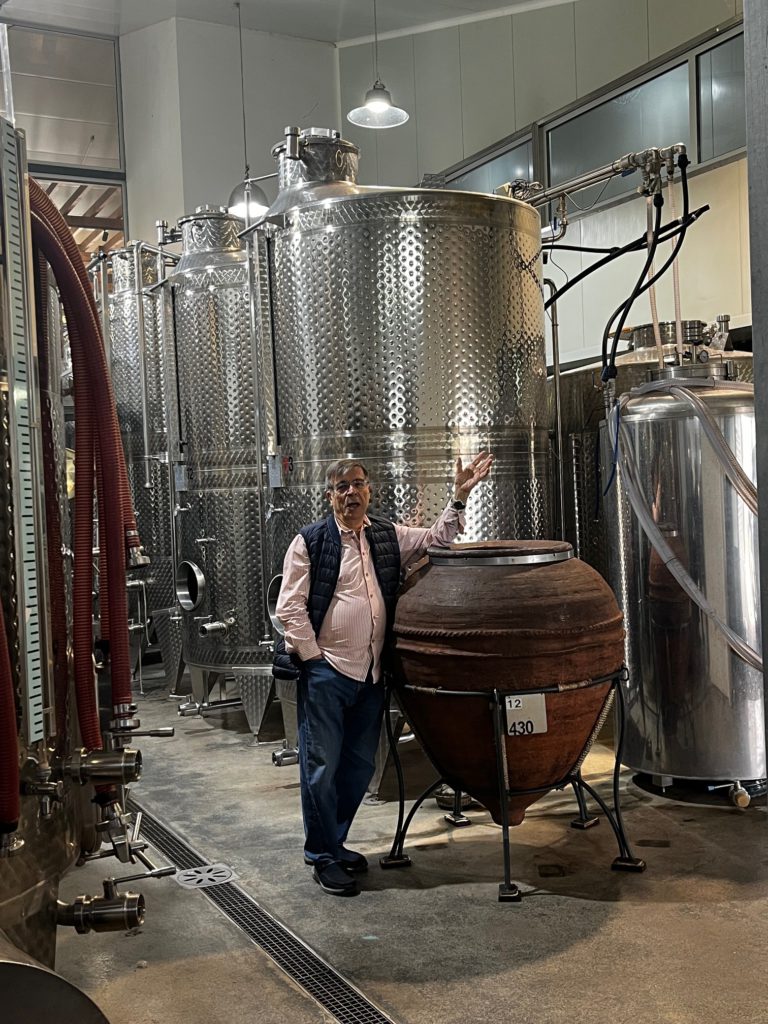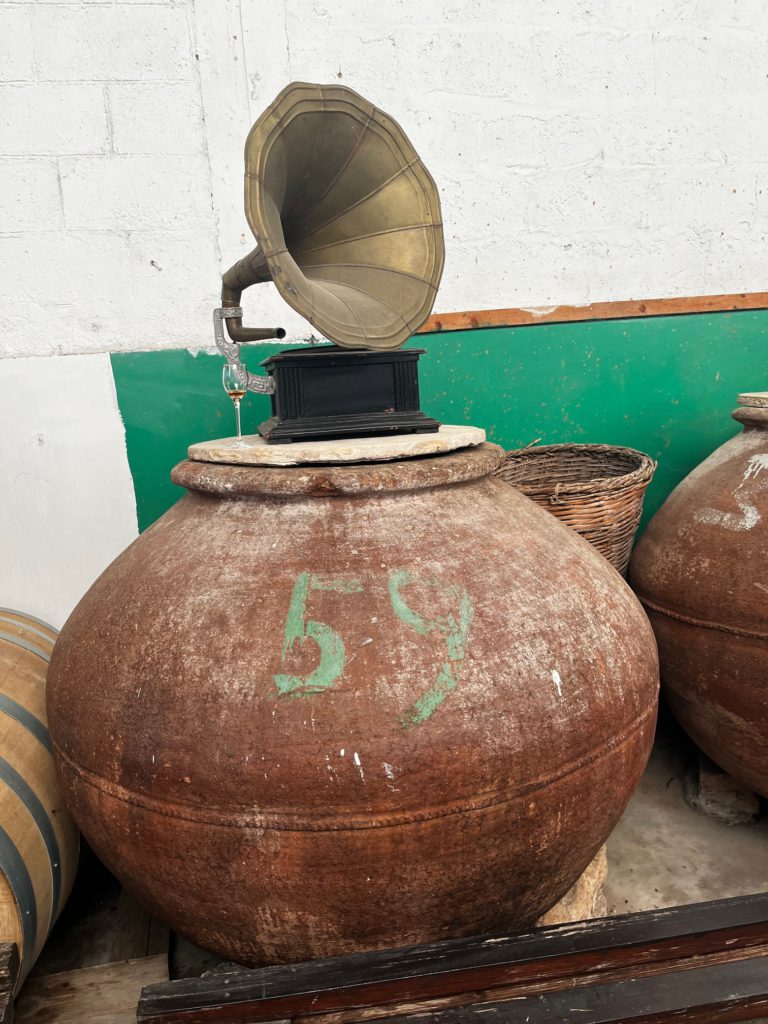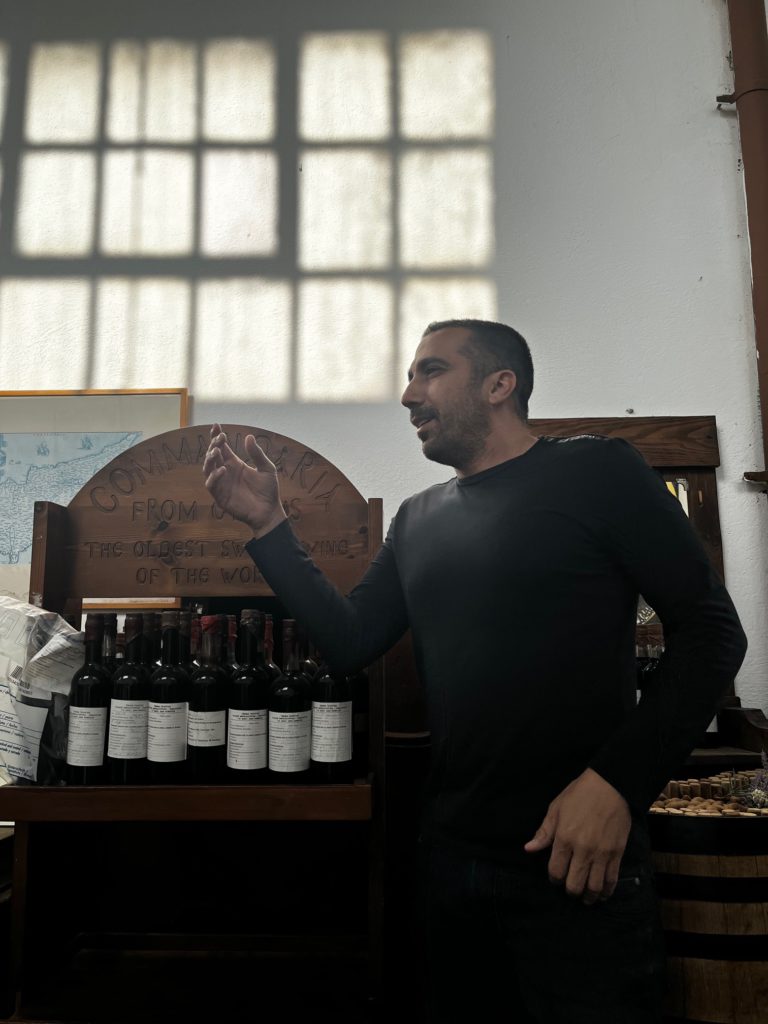On a quest for old vines and new wines, Luisa meets the wine producers who are putting Cyprus back on the wine map….
Blessed by generous sunshine and the fresh breeze of the Mediterranean Sea, Cyprus is home to some of the oldest grape varieties in the world. Still, wine does not promptly spring to mind when thinking of Cyprus, which is arguably more famous for its stunning beaches, coastal scenery and ancient history.
Yet along with its delightful blend of sun, sea and Mediterranean flavours, Cyprus offers a long history of winemaking, with evidence of viticulture dating back almost 6,000 years. The island ranks 22nd in Europe and 47th in the world in terms of total production, but in the UK one would be hard pushed to name a Cypriot wine, perhaps besides the iconic Commandaria dessert wine.
However, the increasing popularity of Greek wines has encouraged the wine trade to look again at this neglected corner of the wine world: the wines have a true sense of place, are eminently drinkable and are age-worthy too. Cyprus is finally enjoying a much deserved wine renaissance. Today, wineries are focused on quality, preserving the island’s unique viticultural heritage and highlighting the terroir of Cyprus.

The ’big four’ wine producers in Cyprus are Keo, Loel, Etko and Sodap, who have historically dominated the industry and are known for their large scale production and distribution worldwide.
They might be large, but they have a ‘soul’ when it comes to making wine. Keo for example, is working on a lifetime project in the picturesque southern slopes of the Troodos Mountain range. Here, the Keo winery in Mallia dating back to 1927, lies in the heart of 1,000 ha of vineyards, where some of the best indigenous Cyprus varieties are grown.
Heading the winery is Dimitri Antoniou, who explains: ‘We take grapes from different altitudes, from the sea to the mountains, to balance ripeness with freshness. It has not rained for three years, and we must adapt to climate change’. Keo has its own vineyards but also buys grapes from around 1,000 small growers, thus keeping them in business.
The first taste of Xynisteri, a crisp, dry white wine produced from the indigenous variety by the same name, is a revelation. Meaning ‘early ripening’, it has a refined aroma and smooth flavour, and it’s expertly vinified at the Mallia Winery.
It’s just one of around 15 indigenous grape varieties, well suited to the island’s climate, which are being rediscovered and celebrated.
Then there is Mavro, which means ‘black’, the dominant red grape variety. Keo’s Mavro exhibits notes of red and black fruits, particularly cherries, and with its mild acidity it’s a good option for summer drinking. It also makes a delicious rosé.
Maratheftiko is ‘the thief’: this indigenous red grape variety can’t self pollinate, so it’s co-planted with other varieties where it can steal pollen to ensure fruit development. The Heritage Maratheftiko 2023 and 2021 were exciting and exceptional, with notes of black olive and sour cherry flavours combined with firm, chalky tannins. Not dissimilar to Sangiovese in some way.
But it’s Yannoudi that it’s experiencing a resurgence and it’s being used to create a new wine. Named after Yannis, a man who found the grape by chance back in the 1980’s in a village near the sea, it is considered by many as ‘the future of red Cyprus’ wine.
With grapes coming from a single vineyard, the wine has its own identity, it’s made in limited production and all bottles are numbered. A dark wine with forest fruit and flowers on the palate, spice and tannin. An elegant crowd pleaser and a winning wine for Keo and other wineries now also planting it.
Many producers are now also successfully planting international varieties such as Cabernet Sauvignon, Chardonnay, Merlot and Grenache.
At the other end of the scale, right up in the mountains at an altitude of 1,350 metres, 80-year old Daniel Anastasis owns and runs Santa Irene Winery in Farmakas Village. This medium-sized family winery pays homage to the land and vines their ancestors have passed on, respecting the terroir and the indigenous grapes.

They are called ‘wines under the clouds’, as the vineyards are so high up. The unique topology, rocky soil, no irrigation, just relying on the morning dew for a little moisture every day, huge climatic differences between day and night, vines over 100 years old, all contribute to making this winery rather exclusive.
Charismatic, well-travelled, having lived both in Australia and South Africa before returning ‘home’, Daniel tells of his dream winery, and how the locals offered him land they could no longer cultivate when they heard of his plans. He also bought all the clay amphorae he could find, (here known as pithari) and uses them for fermentation and storage without the need for additional cooling.
He grows Ambra, Xynistri, Mavro Ambelisimo, and makes low intervention wines, that is to say, using wild yeast, no additives or filtering when possible. The vines are very healthy and are all pre-philloxera.
With his international background, he is not afraid to experiment, making a Xynisteri Nectar for example, and white wine made from red grapes, called Daniel, which is from Mavro Ambelisimo fermented in clay pots. He even grows and makes Shiraz, an homage to Australia where he lived as a young man.
A tasting of Cyprus wines would not be complete without Commandaria. Both Revecca and Karseras are dedicated Commandaria wineries, exclusively producing this dessert wine which is the ‘soul’ of the island.
Commandaria is a designated wine region, which specifically refers to a protected area where this unique dessert wine can be made. The region includes 14 villages on the southern slopes of the Troodos Mountains, near Limassol.

This historic wine style dates back to the 12th century and the name comes from the ‘Grand Commandery’, when this feudal land belonged to the Knights of St John of Jerusalem, where the original vineyards were located. The wine celebrated its 800th milestone anniversary last year, from 1224 to 2024.
All Commandaria wines are sweet and can be high in alcohol (15-20%). Their sweetness is entirely natural – the result of the high sugar level grapes can achieve in Cyprus’s warm climate, later concentrated by the drying process the grapes undergo before vinification. Some producers, but not all, choose to add pure grape spirit to achieve a higher alcohol level.
Run by a passionate young man, Nicolas Christodoulides, who lived in London for 10 years before returning to the village of Agios Mamas to make Commandaria, the Revecca micro-winery is named after his grandmother. It’s an old family house where it all seems to happen. He makes just 10,000 litres per year, bottling about 4,000 bottles under its own label and selling the rest to larger companies.
Only two grapes are allowed in Commandaria, Xynisteri and Mavro and the wine is subject to strict regulations in order to be granted the PDO (Protected Denomination of Origin). Aged for a minimum of two years, this Commandaria is pure pleasure, not fortified, with a fresh acidity which makes it ideal to accompany many foods, such as blue cheese and pate’ for example, not just desserts. Tasting vintages from 2023 to 2015 is an eye-opener on how this wine can develop and reward the most demanding of palates.

The same passion is found at nearby Karseras winery in Daros village, where Philip Karseras says that the family has been making Commandaria ‘forever’. He is also one of handful of independent producers who mostly sell to the big wineries, keeping just some for his own label.
His ‘Family Edition’ 2023 is delicious, and his ‘Platinum Commandaria’ 2005 with its incredible red hue and intense coffee notes is ‘Christmas in a glass’. He mainly uses Mavro grapes for is wine, as he says that the Xynisteri grape is ‘too flowery for his taste’.
The Cyprus Government recognises the importance of this wine and its heritage and provides subsidy for its production. The emphasis is on sustainable methods, and the PDO certification assures quality over quantity. They search for abandoned vineyards and replant them so that the wine can continue to be made. Head of the Wine Sector Dr. Georgiou Thoukis refers to the wine’s importance as ‘The Commandaria Legacy’.
Hellenistic mosaics discovered in 1962 close to the city of Paphos depict a smiling Dionysius, the god of wine, whose smile suggests he would still approve of these wines today.
Amathus Drinks carry a good range of Cyprus wines in their shops in London, Bath and Brighton, also available at www.amathusdrinks.com; The Wine Society at their shop in in Stevenage and with free delivery nationwide www.winesociety.com; Cyprus wine specialist Aspris & Son www.aspris.co.uk; also check your local supermarket.
Cyprus food, wine, music and culture festival on 6-8 June 2025 at the Decorum, North London https://cwfexpo.co.uk/
